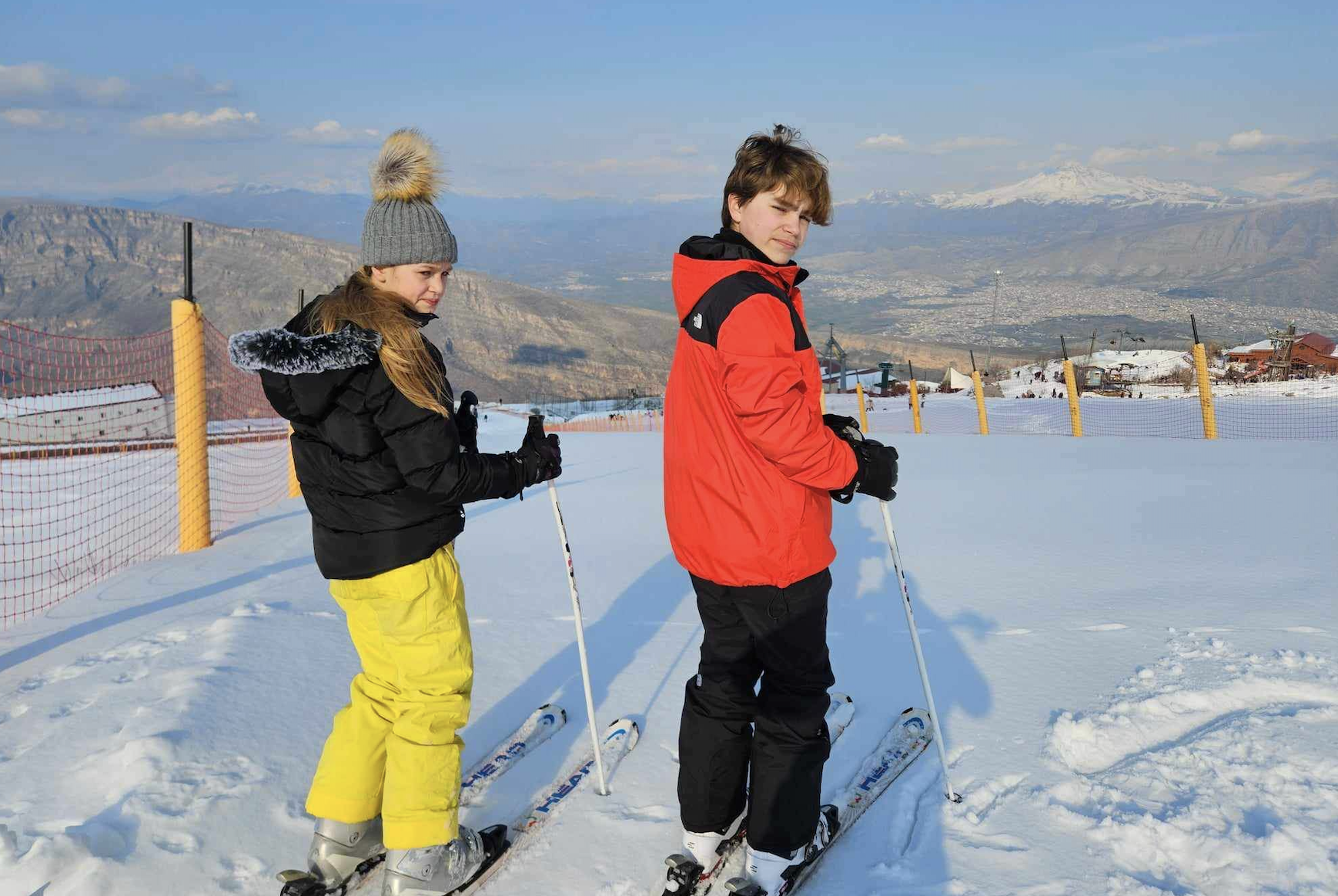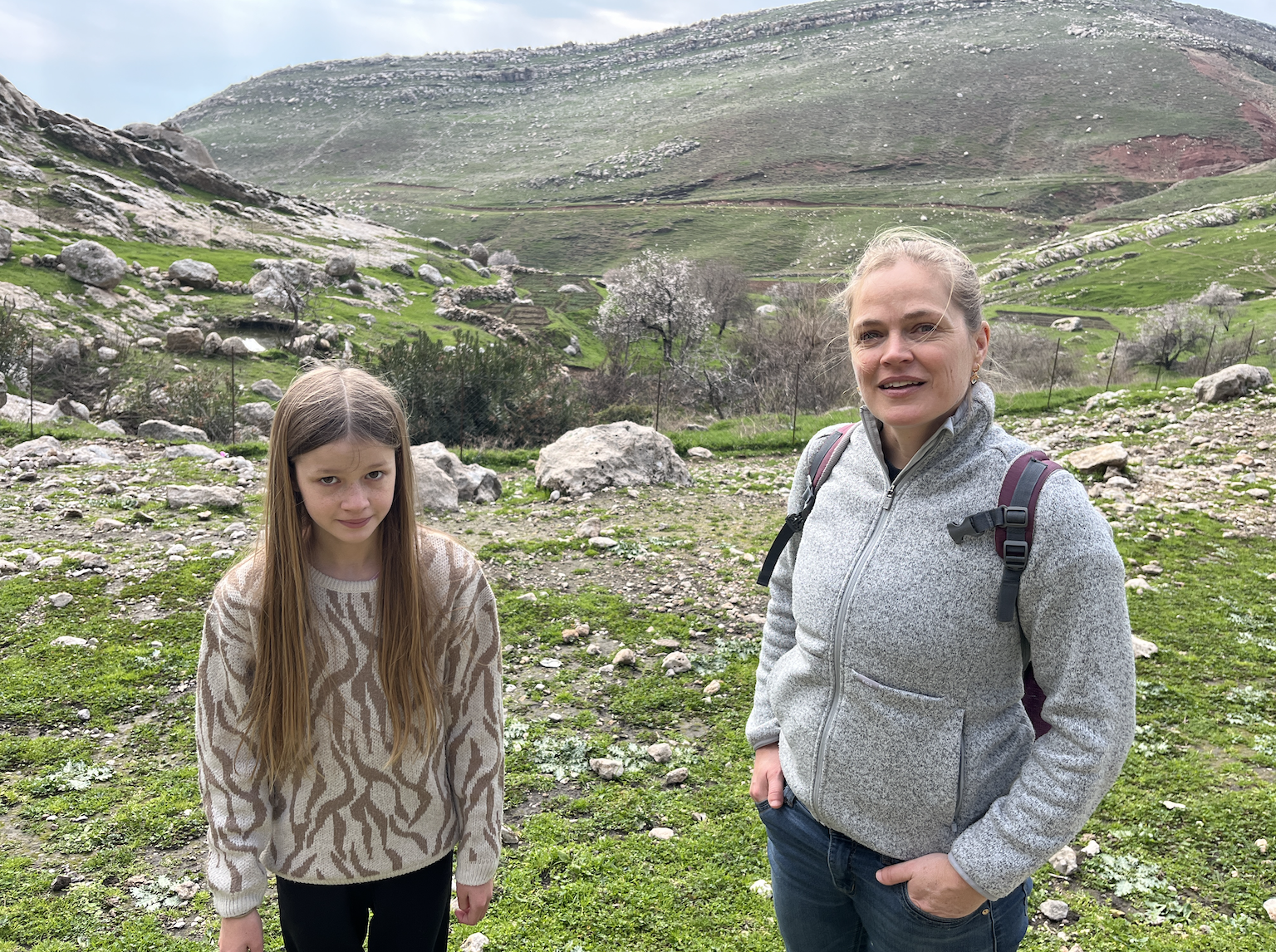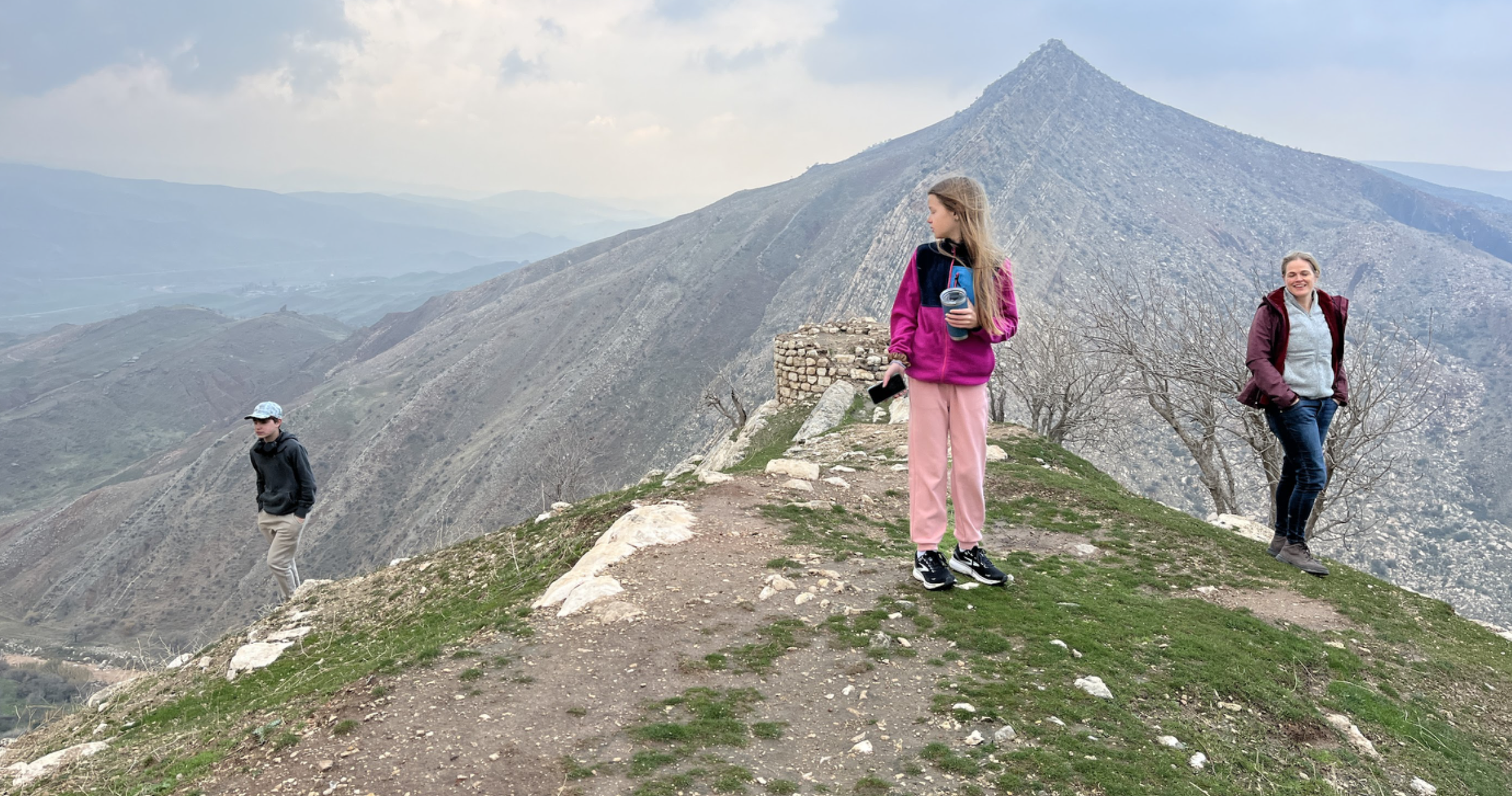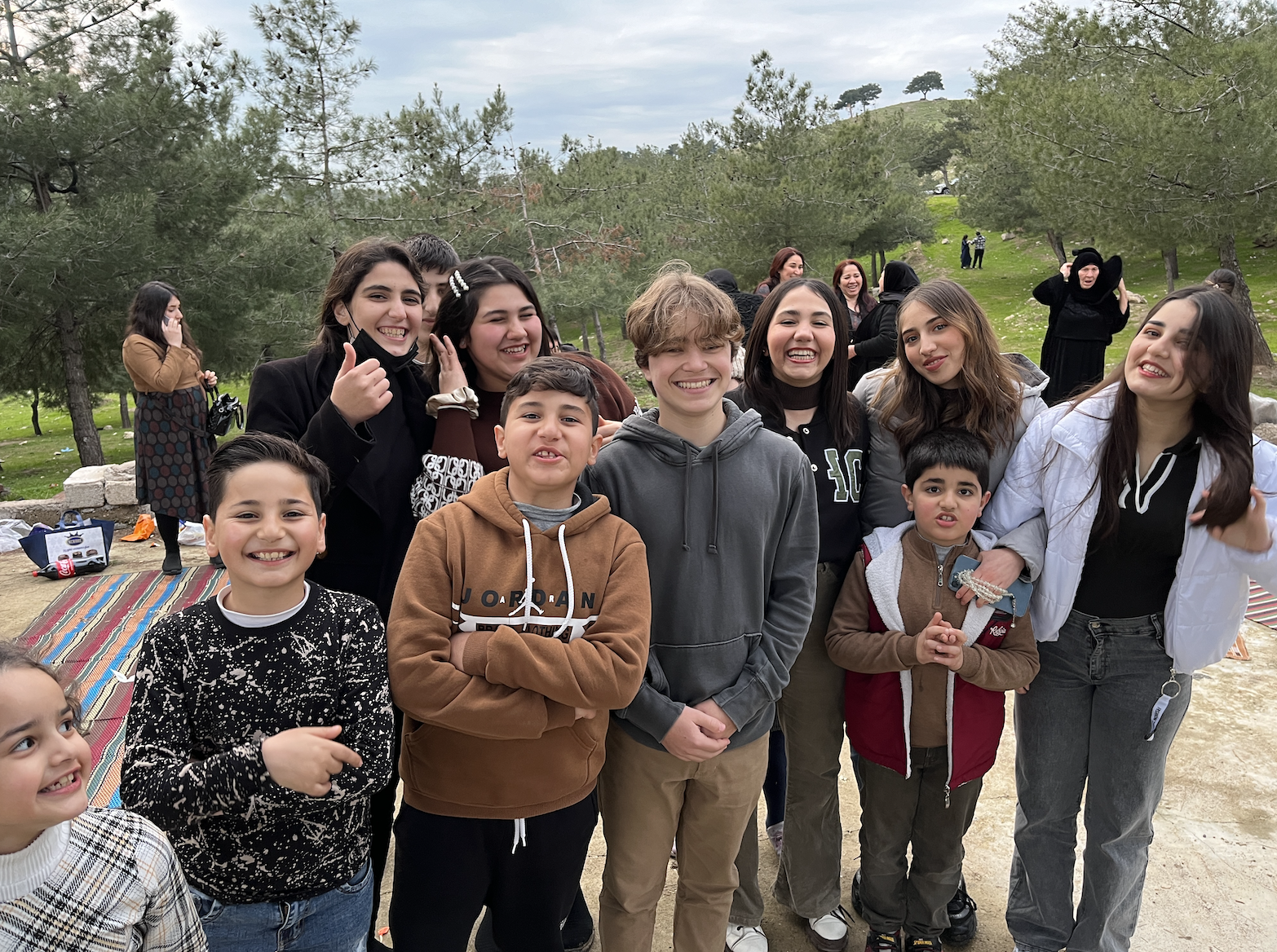Dr. David Romano, the Thomas G. Strong Chair in Middle East Politics at Missouri State University in the United States, spent five months – from January to May 2024 – of his sabbatical with his wife Lucy and two children Ben and Hanna in the Kurdistan Region.
“Kurdistan and Kurdish issues have been part of my life for a long time, and I wanted the kids especially to understand a bit more about the place and the people that I spend so much time with,” David explained.
David is a well-known expert on the Kurds who has written several books and articles on the region and its people. Twenty years ago, he and his wife Lucy also spent a year in Kurdistan.
“Lucy had seen Kurdistan, but the kids had never been here.” David said. “It’s also good to get kids in different environments where they have the opportunity to grow and learn.”
Lucy was eager for the visit, but some people warned her not to go. “Right before we came, some people were telling me it was unwise go,” she said. “But when we got here, I felt very safe and was glad that we didn’t chicken out. The husband of one of my friends works at the U.S. military airbase as a contractor, and he thought we were crazy. ‘It’s the Wild West,’ he said, and I almost had a panic attack before leaving. However, once we got here, we realized that life is normal and that he’s missing out by sitting in his bunker all day.”

The freedom of the open road
David typically visits Kurdistan for interviews or conferences. However, this time he rented a car for his five-month stay while serving as a visiting professor at the University of Kurdistan Hewler (UKH). “Anytime we had free time or it was a holiday for the school we could go visit friends and other cities,” he noted.
David and his family took several hiking trips in Akre, Halabja, Barzan, and other areas in Kurdistan, and even went skiing in Mount Korek.
“We were practically the only ones skiing there – there was only one other person. They have two ski lifts, but the second lift, which leads to a steeper run, wasn’t operating. When I asked why, they said that it was because of too much snow accumulation. I thought, isn’t that the point? So, we had to climb to reach the higher run, but it was fun. It was a very beautiful day,” David recalled.
Lucy thinks Kurdistan could do more to promote its nature and heritage and attract foreign tourists. “In some ways I don’t want to advertise it because it’s quite nice going to the archaeological sites like Shanidar Cave and it is not bustling with tourists. But at the same time, you want everyone to know how amazing it is here.”

David also wants to bring students from the United States to Kurdistan, although the administration of his university has thus far rejected the idea. “Before, I used to bring students to Turkey, including southeastern Turkey, as well as to Bosnia and other places. If I could get permission for it, it would be a way to make people realize what it’s really like here.”
“The government can work to promote the region for tourists from the rest of Iraq and neighboring countries. That’s something the government could do, but I’m not sure about a government initiative to encourage Europeans or people from further away to come. That’s something that must occur on a personal level, either by word of mouth, visiting, or making friends with Kurdish people,” David said.
“The best thing the government can do is make sure the standard of things like food and infrastructure is up to par and continue working on security, and the rest of will work itself out.”
David said the real beauty of Kurdistan is in the countryside. “Erbil is a nice city, in terms of restaurants, stories, and services, but the real beauty is outside of Erbil.”
Moreover, he mentioned that conference organizers in the Kurdistan Region could schedule nature outings for conferences in Kurdistan that have foreign visitors and experts. “This could really help represent Kurdistan in its true beauty,” he suggested.

“I was talking about this with another professor, Fabrice Balanche. We went hiking together with the whole family in Barzan,” he said. Balanche had come for a conference on climate at the UKH but then stayed longer to go hiking. “But just about all of his other colleagues who went to the conference only stayed at the conference and then went right home, so they never left Erbil,” he noted.
“The distances are not great in Kurdistan and there are so many beautiful walks, hikes, and waterfalls. They really should try to take the opportunity to show people who are visiting for work or conferences to take a half day and go somewhere outside the cities to explore. This could also help the rural economy if it became a widespread practice,” David said.

New connections in the classroom
For education during their five-month stay, David’s children went to a local English school where they also learned Kurdish, Turkish, and Arabic. “The language classes were kind of hard,” admitted his 12-year-old daughter Hanna, who said that she doesn’t speak Kurdish yet.
“They were required to take those language classes, but the teachers understood that they’re only here for five months. So, they didn’t work too hard to get them caught up with the rest of the class,” David said.
Furthermore, Lucy said that her children made friends with not only Kurdish students, but also Turkish and Syrian kids at the school.
David said that his children will now understand the complexities of the region when they go back home. “They’re going to understand some of the complexity just from having been here. They can relate to it personally because they’ve made friends with people from the different groups in Kurdistan,” he reflected.
David added that in the future the kids would love to come back and see the friends they made at school. “I know I will come back at least once a year, but for the rest of the family, it’s hard to say when we’ll have an opportunity like this. I only get sabbatical from my university every seven years.”
However, Lucy seemed more certain. “I’m sure we’ll all come back at some point,” she said.
Wladimir van Wilgenburg is a seasoned reporter and analyst who specializes in Kurdish affairs, and holds a Master’s degree in Kurdish studies from Exeter University.